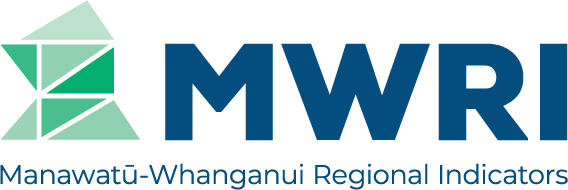Manawatū-Whanganui Councils collaborating on recovery
“In addition to housing information about the Regional Economic Recovery Taskforce that was stood up by regional chiefs during the pandemic, the MWRI website includes a Regional Economic Impact Assessment Report, regional economic dashboards, shovel ready projects submitted to central government for funding consideration, and news items.”
Manawatū District Council economist Stacey Bell says the Economic Impact Assessment Report estimates a reduction of $382.5 million to the regional economy in 2020 as a direct result of Level 3 and 4 COVID-19 restrictions.
“This is a 3.4 per cent decline in regional GDP over 2020 versus the previous year compared with an estimated 3.7 per cent contraction across the New Zealand economy. In total, we estimate the regional economy will contract by 6.2 per cent over 2020 as a result of Level 1 to 4 restrictions,” says Mrs Bell.
“Our economy was in a strong position before the pandemic and industry strengths across the region will insulate our economy from the worst impacts. The region’s primary and agri-food production sector is strong, and central government investment and high employment within the public, health care and social assistance sectors will help sustain regional employment levels and many household incomes.
“In contrast, the retail, accommodation and food services sectors, and the wider services sector are most vulnerable to the impacts of the lockdown period and the impacts of uncertainty going forward. Shopping local, domestic tourism and the resumption of conferences and events will support the recovery of these sectors over 2020.
“Another area that experienced significant disruption as a result of the lockdown period was our region’s construction sector. We anticipate that the strong pipeline of building projects and infrastructure investment, in addition to central government investment in shovel ready projects, will support confidence and enable businesses to stay open.”
In addition to the full Economic Impact Assessment Report, Palmerston North City Council’s economist Peter Crawford has assisted in pulling together regional economic metrics represented on the website through dashboards. These will be regularly updated depending on the data available.
“The regional dashboard shows a strong recovery in economic activity in the region since the country moved to Level 2 restrictions on 14 May,” says Mr Crawford.
“Retail spending in the region has been well above the same period last year in the five weeks since then and the Ministry for Social Development job seeker numbers have been gradually declining since mid-May.”
Tararua Mayor Tracey Collis says that collectively, the region’s city and district councils and Horizons Regional Council submitted 88 projects, with the value of almost $1.05 billion and the prospect of creating over 15,000 local jobs to central government for funding consideration.
“A further $3.1 billion of investment towards transport infrastructure will enable projects already planned or underway to be accelerated, assisting with the region’s medium-term recovery,” says Mayor Collis.
Regional Economic Recovery Taskforce member Pahia Turia says a significant factor in recovery is job creation. And that is why skills and talent is just one of many areas the Regional Economic Recovery Taskforce is focusing on.
“The regional chiefs stood this Taskforce up early. Membership includes iwi, business, local and central government leaders, and economic development agencies’ representatives. We are tasked with providing a strategic, regional lens, complementing the work being done by individual councils,” says Mr Turia.
“The Taskforce has met on numerous occasions and just recently finalised their top recovery projects. In addition to supporting the shovel-ready projects and regional leadership coordination for skills and talent, these include the Central NZ Distribution Hub, Otaki to north of Levin State Highway 1 alignment, Ruapehu tourism, Whanganui Port revitalisation, Te Ahu a Turanga: Manawatū Tararua Highway, and a Marton Rail Hub and manufacturing project.
“While the long-term impact of COVID-19 is still unknown, the industry make up of our regional economy means our prospects for recovery are better than many other parts of the country.
“That does not mean we won’t have areas of vulnerability or that the climate isn’t volatile. Good data and information will be critical to supporting recovery efforts across the region. Through our continued collaboration we have the mechanisms to move quickly, and seize opportunities that will see our region not just survive and revive, but thrive.”
ENDS
Chrissie Morrison, Media and Communications Manager, Horizons Regional Council, 027 695 9747


